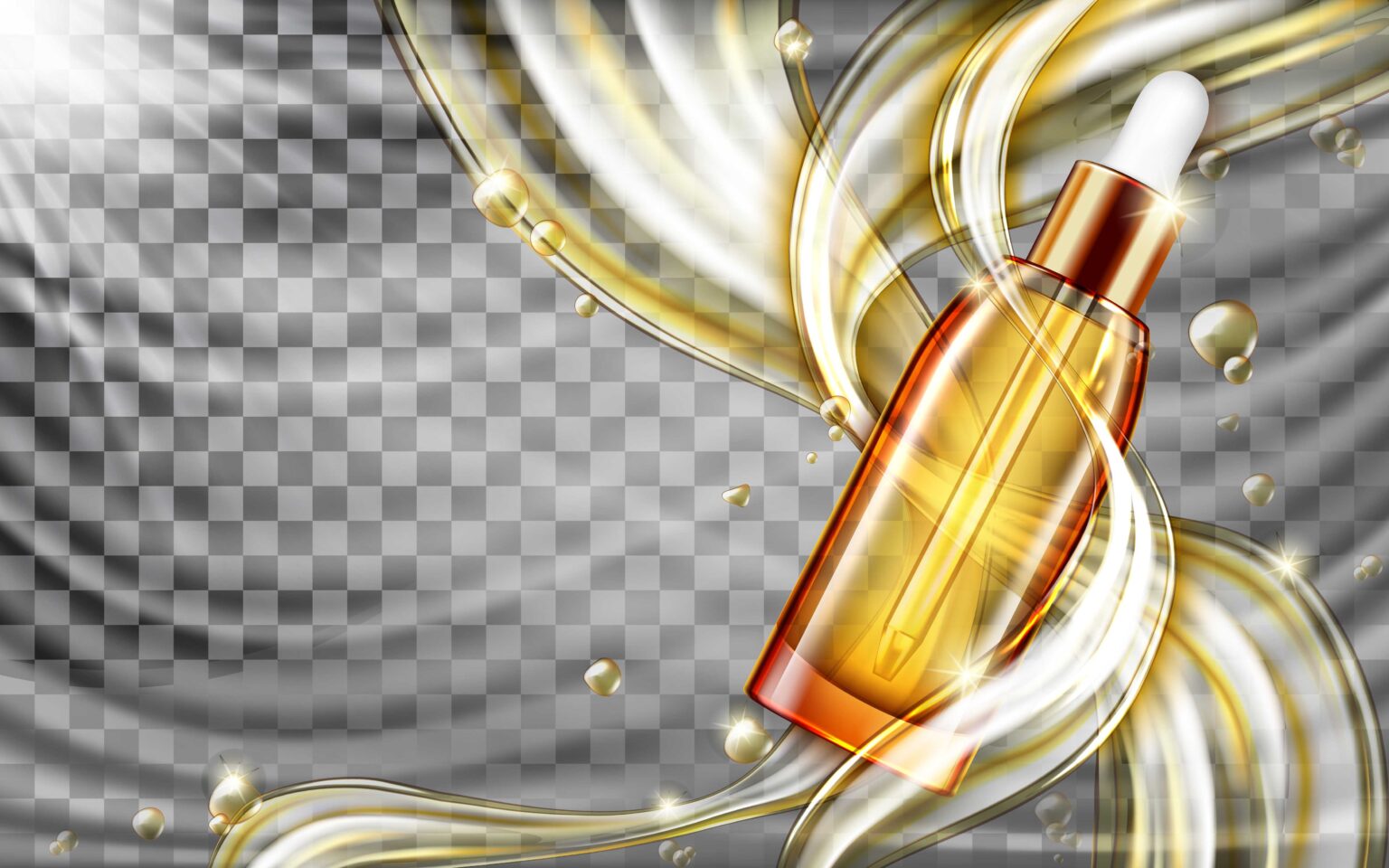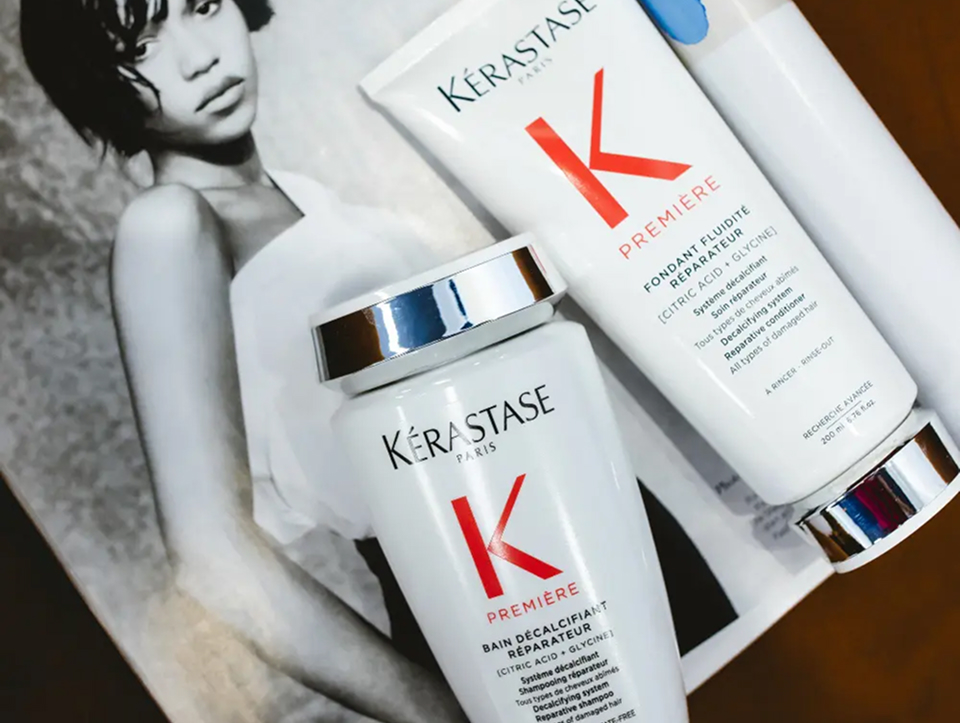Healthy hair starts with a healthy scalp. In fact, research shows that scalp health plays a major role in preventing hair thinning, shedding, and conditions like dandruff.
That’s why scalp serums are becoming a must-have in modern hair care routines. But what exactly is a scalp serum? How does it differ from hair serums and oils, and is it really necessary?
As a professional hair and scalp spa, we’ll break it all down for you so you’ll know whether adding one to your routine is worth it.
What is a Scalp Serum?
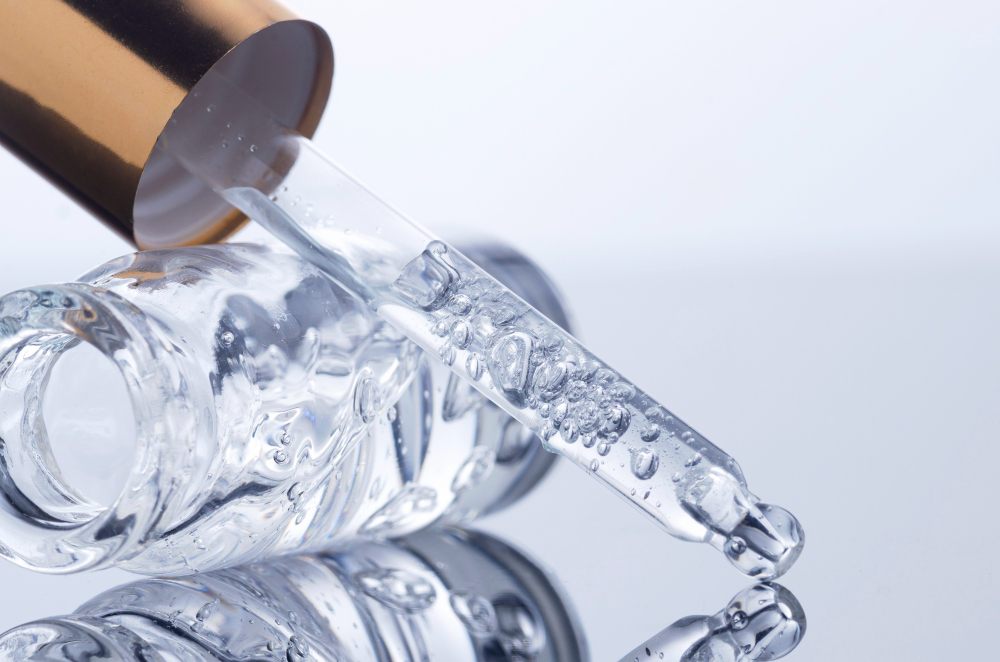
A scalp treatment serum is a lightweight, fast-absorbing liquid treatment designed to nourish your scalp. Unlike hair serums (which smooth and protect strands), scalp serums target the skin beneath your hair where follicles live and grow.
Key functions of scalp treatment serums:
- Hydrate dry, flaky, or itchy scalps
- Balance scalp pH levels
- Deliver antioxidants to fight free radicals
- Improve microcirculation for follicle health
- Provide anti-inflammatory relief for scalp irritation
- Create a healthier environment for hair growth
🧴 Many formulas even include hyaluronic acid, niacinamide, peptides, or antifungal ingredients to address specific issues like dandruff, dermatitis, or shedding.
💡 Tip: If you’re experiencing persistent dandruff or scalp psoriasis, check our guide on common scalp conditions or consult a dermatologist before self-treating.
Benefits of Using a Scalp Serum
So, what does a scalp serum actually do for your hair and scalp?
Here are the top benefits backed by dermatologists and hair science research:
| Benefit | How It Helps / Study Evidence |
|---|---|
| Hydration & Soothing | Prevents dryness and irritation. A pilot study with a copper-tripeptide scalp serum significantly improved scalp hydration and reduced flaking in participants with seborrheic dermatitis. |
| Reduces Shedding & Improves Density | A 24-week trial of a leave-on antioxidant/barrier-enhancing scalp treatment showed reduced hair shedding and improved hair count. |
| Supports Hair Growth | By improving scalp circulation and follicle environment, scalp serums create ideal conditions for hair growth. Combined with microneedle therapy, topical serums enhanced scalp repair in alopecia cases. |
| Balances Scalp pH & Reduces Inflammation | Ingredients like niacinamide, peptides, and antioxidants reduce inflammation and maintain a healthy scalp environment, supporting long-term scalp wellness. |
| Protects Against Environmental Stress | Antioxidants in scalp serums shield scalp skin from free radicals, pollution, and UV-related damage. |
💡 Tip: Look for serums specifically formulated for scalp application, as these are tested to target the follicles and skin layers, not just the hair shaft.
👉 Do you know when to use a scalp serum or hair oil? Learn everything about them here.
When & How to Use a Scalp Serum
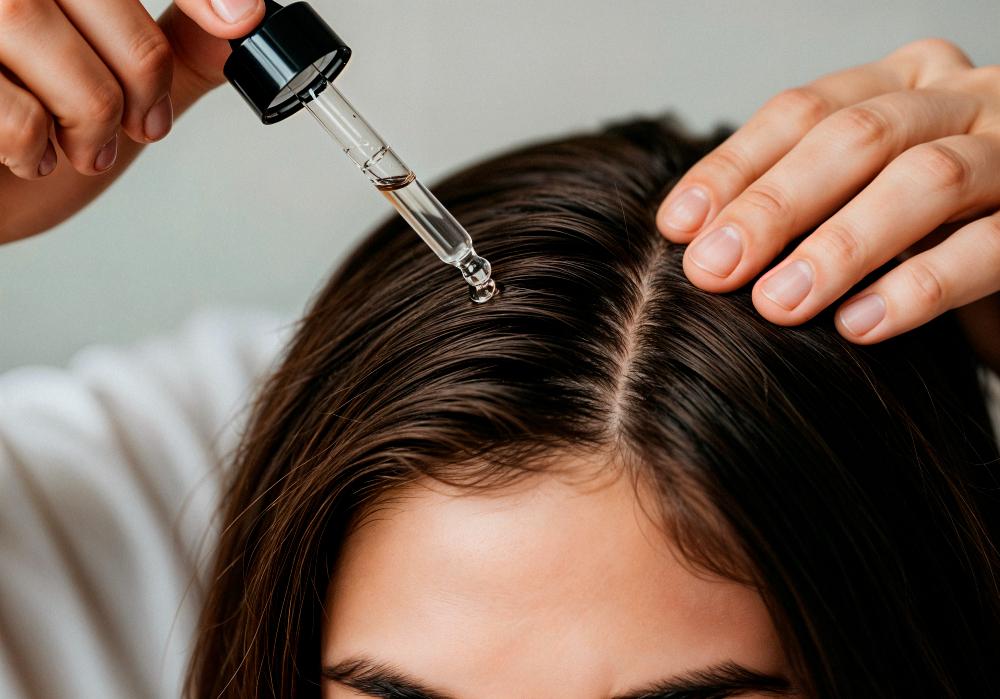
Consistency is essential. Many people stop too soon, but serums need time to work—6–12 months for visible results in hair thinning or shedding.
Here’s a simple step-by-step guide 👇
- Apply a few drops directly to your scalp (wet or dry).
- Warm it up by rubbing between your fingertips.
- Massage gently into your scalp in circular motions for 1–2 minutes (boosts blood circulation).
- Leave overnight (unless instructions say otherwise).
- Shampoo in the morning.
- Repeat every other night, or as directed for prescription formulas.
💡 For dandruff or dermatitis, consult a dermatologist; sometimes, a medicated serum or antifungal scalp treatment is more effective.
Scalp Serum vs Hair Serum vs Scalp Oil
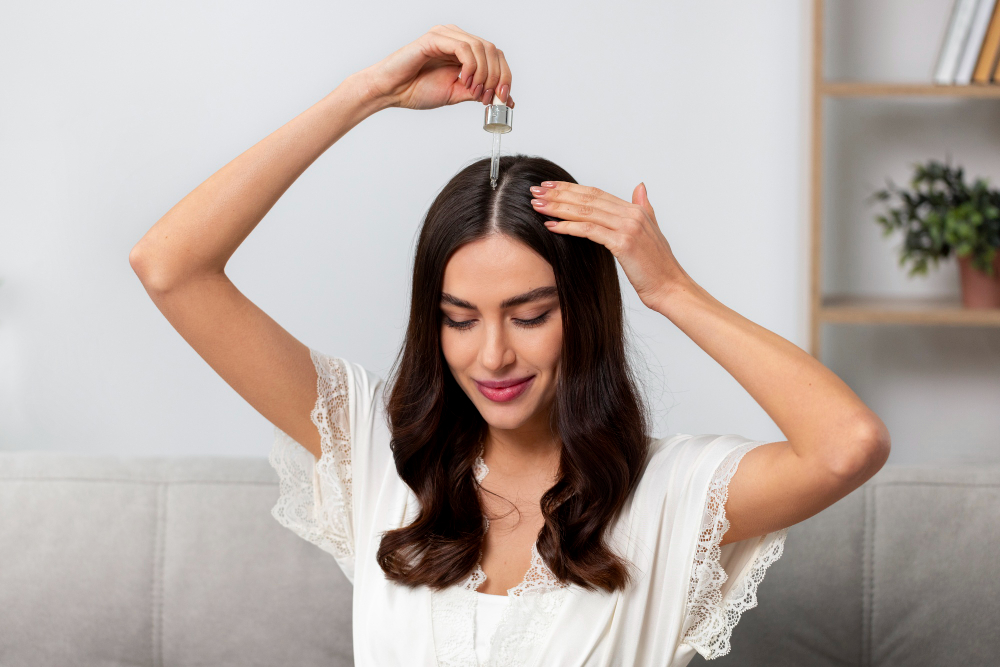
People often confuse serums for scalp health with hair serums or oils. Here’s a breakdown:
| Scalp Serum | Hair Serum | Scalp Oil | |
|---|---|---|---|
| Focus | Nourishes scalp & follicles | Smooths, shines & protects strands | Hydrates & protects scalp/hair |
| Texture | Lightweight, fast-absorbing | Silky coats hair | Thick, rich |
| Best For | Dryness, dandruff, thinning, irritation | Frizz, split ends, heat protection | Thick/curly hair, inflammatory scalp issues |
| Absorption | Deep into scalp layers | Stays on the hair shaft | Slow, heavier feel |
👉 Want to dive deeper? See our complete guide: What Causes a Dry Scalp and how you can prevent it with a 7-Day Scalp Detox Routine.
Who Should Avoid Scalp Tonics?
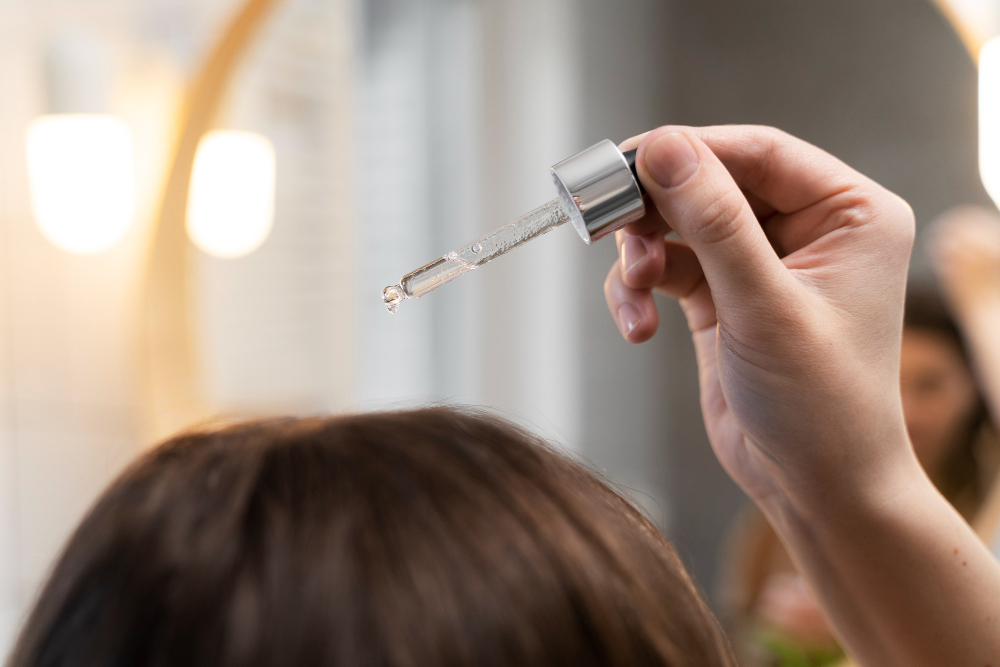
While scalp serums are great for most, they’re not ideal for everyone:
- If you’re unsure whether you have dry scalp or dermatitis, get a diagnosis first.
- If you have very oily or fine hair, serums may weigh it down.
- Using too much near the roots can reduce volume and movement.
Visit Our Scalp Spa For Hair Growth Today
A scalp serum can be your secret weapon against dryness, dandruff, and thinning hair. It hydrates, balances, soothes, and sets the stage for healthier growth.
If you want a quick fix, try an over-the-counter option like Kérastase Nutritive Scalp Food Serum.
But for long-term results, consistency is key, and pairing it with professional scalp treatments at Haste Hair Spa can give you the best outcomes.
✨ Ready to transform your scalp? Book your scalp consultation today.
FAQ
How often should I use a scalp serum?
Most OTC serums can be applied every other night. Prescription serums may require once or twice daily use; always follow the label.
Can I leave a scalp serum overnight?
Yes, leaving it overnight helps ingredients absorb better. Wash out in the morning.
Is scalp serum necessary?
Not always, but if you have dryness, dandruff, or shedding, it’s one of the best ways to treat your scalp directly.
What does a scalp serum do?
It hydrates, balances pH, improves blood flow, and nourishes follicles, creating the right environment for stronger, healthier hair.
Do scalp serums help hair growth?
They don’t regrow hair like medicine, but they create healthier conditions for growth and reduce shedding.

